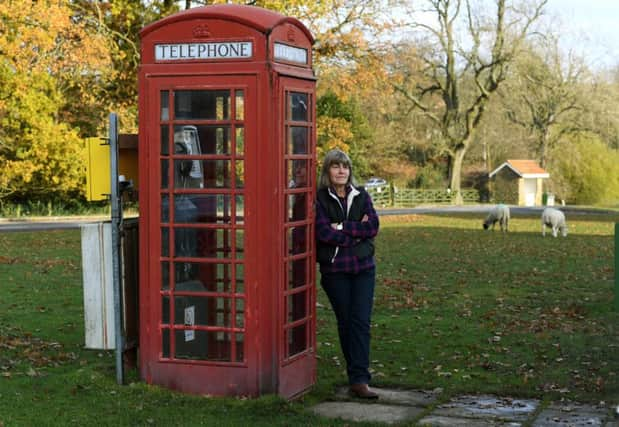Councils engaged in battle to save Yorkshire’s village phone boxes


With patchy or nonexistent mobile coverage in many areas, they remained a lifeline for isolated communities, said councillors as they agreed to engage in battle with BT.
They had been persuaded by parish councils across the county to adopt a formal stance against plans by the phone company to drop the line on public callboxes with too few callers.
Advertisement
Hide AdAdvertisement
Hide Ad“We need to apply pressure, strong pressure, to keep these landlines up and running,” said Angus Thompson, chairman of the Richmond constituency committee at North Yorkshire County Council, as it agreed to ask BT to retain 43 phone boxes considered vital for public safety.
“It’s all very well BT looking at usage statistics, but if there’s an accident, the availability of a phone box in an area where you can’t use your phone because the signal is too weak could be the difference between life and death,” added Jill McMullon, chair of Hawes and High Abbotside Parish Council in the Dales.
Less than two-thirds of North Yorkshire is covered by a mobile phone signal, compared with 91 per cent nationally, the committee heard.
Heather Moorhouse, a councillor whose division includes part of the North York Moors, said the phone boxes must remain in place until coverage was uniform across the area. But with reluctance on the part of many residents to see mobile masts erected in the county’s two National Parks, it was a complex issue, she told The Yorkshire Post.
Advertisement
Hide AdAdvertisement
Hide AdThe phone box on the village green in Goathland, in the North York Moors, is one of the most familiar in the county, having been the location for the TV series, Heartbeat.
It is among those under threat of being removed by BT, despite the absence of mobile coverage in parts of the village.
Jayne Harker, a member of the parish council, said an objection to its loss had been lodged with the company.
“The box at Green End, at the other side of the village, has already gone,” she said.
Advertisement
Hide AdAdvertisement
Hide Ad“This is the only one left. It’s like so many services – they get taken away bit by bit. Maybe it doesn’t get used an awful lot but it’s still there for emergencies when you need a phone and you can’t get a mobile signal.”
BT said it was not proposing to remove payphones in areas identified as having a “social need”, which it said were those in “suicide hotspots”, accident blackspots, areas with no mobile coverage at all or those by the coast with no other callbox nearby.
It said it would ask for council permission to remove a phone box “in all instances where there’s no other payphone within 400m”.
A spokesman said: “We are consulting on the removal of a number of payphones,” adding that “the need to provide payphones for use in emergency situations is also diminishing all the time”.